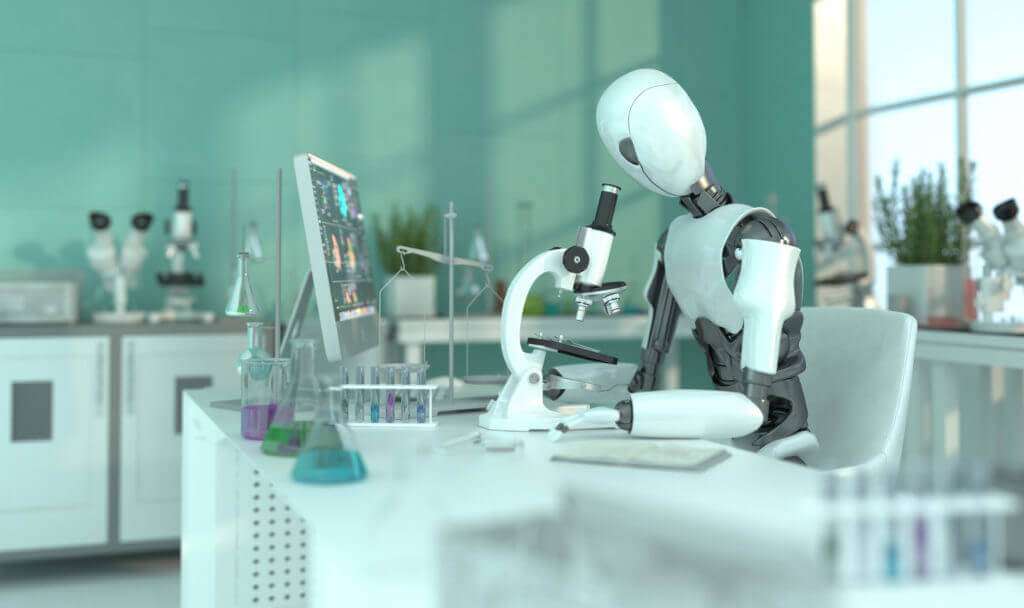
L'Intelligenza Artificiale (IA) è sempre più presente nelle nostre vite, viene applicata in numerosi campi di ricerca e sviluppo, e così contribuisce a modificare le nostre abitudini quotidiane, come i rapporti sociali, l'alimentazione, i trasporti, la salute.
Negli ultimi anni l'IA sta giocando un ruolo sempre più decisivo anche in campo biomedico.
Grazie alla sua elevata capacità di analisi e interpretazione dei dati, rappresenta già uno strumento di supporto decisivo per il personale medico, nel rilevamento di biomarcatori, nella classificazione e prevenzione di specifiche patologie, fino alla creazione di modelli organici tridimensionali.
In medicina, IA e Deep Learning (DL), sono strumenti ampiamente utilizzati, permettono la gestione e l'analisi di enormi quantità di dati, forniscono relazioni funzionali tra questi, e riconoscono modelli specifici.
In particolare, ad essere innovativa è la loro capacità di offrire diagnosi per immagini, ad esempio il DL per la radiomica in oncologia, che permette di identificare caratteristiche peculiari della patologia altrimenti invisibili all'occhio umano.
Oppure il multiple istance learninig, una tecnica che favorisce l'apprendimento di numerose immagini, determinandone la tipologia di appartenenza specifica. Non ultima, la capacità di massimizzare l'efficacia di una terapia nel corso del tempo attraverso modelli spazio temporali.
Un'altra innovazione in campo medico, che si spera vedrà presto la luce, è quella chiamata “Gemello digitale”. Il progetto portato avanti dall'azienda francese Dassault Systèmes, ha l'obiettivo di migliorare l'assistenza medica attraverso la simulazione di organi umani, in particolare con due progetti: cuore vivente e cervello vivente.
Se il primo intende fornire supporto nei trattamenti cardiovascolari al fine di renderli sempre più precisi e sicuri, nel secondo caso il progetto è pensato per le persone epilettiche che necessitano di un intervento chirurgico. Laddove non ci sia possibilità di cura farmacologica, la volontà è quella di offrire un quadro predittivo il più preciso possibile, nel caso il paziente debba essere operato.
Il colosso francese ha inoltre un hub di sperimentazione che conta attualmente più di 50 progetti in fase di studio e realizzazione, tra cui: una palla giocattolo pensata per bambini autistici, un impianto biomimetico per la sostituzione della cornea, la riproduzione, in stampa 3D, degli aneurismi dei singoli pazienti, che consente ai medici di intervenire in maniera più mirata, e il progetto Iaso per la diagnosi e il trattamento del diabete.

Ad ogni modo, le realtà che stanno implementando l'IA nei loro campi di ricerca sono molte, come l'ospedale universitario di Harvard che utilizza l'IA per diagnosticare a uno stadio precoce le malattie del sangue potenzialmente mortali; per farlo vengono impiegati microscopi progettati per scansionare e identificare i batteri nocivi con una precisione del 95%.
Oppure sempre Harvard sta progettando Buoy Healt, un chatbot in grado di ascoltare il paziente, i suoi sintomi, e guidarlo in un percorso di cura.
I settori di applicazione dell'IA in campo medico sono numerosi e sempre in crescita, ad oggi una delle problematiche di queste tecnologie è legata alle implicazioni e limitazioni normative, relative alla responsabilità medica e alla necessità di rendere pubblici, da parte delle aziende, i codici degli algoritmi. Nonostante la strada sia ancora lunga, i benefici dell'IA applicata alla medicina sono enormi e potrebbero avere ricadute positive a livello globale.
Quale sarà il futuro dell'IA e della medicina? Ti piacerebbe farne parte, magari con una tua idea? Non esitare a contattarci!
